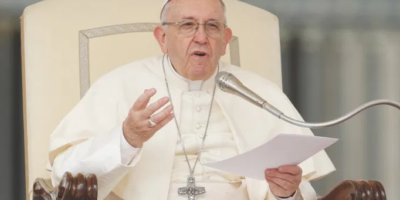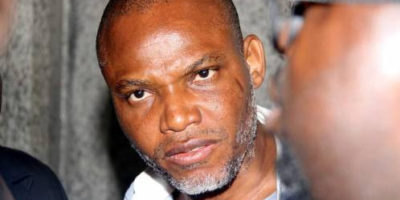Report: With Rising Poverty, Unemployment, Nigeria Sitting On Time Bomb

The Financial Derivatives Company Limited (FDC) has stressed that Nigeria’s high unemployment (27.1%), its large youth population, as well as its poverty rates, mean that the country is effectively seating on a massive keg of gun powder.
The Lagos-based research and investment company stated this in its latest economic bulletin.
Nigeria now has an estimated 91 million people (43% of its population) living in extreme poverty (less than $2 a day).
This is up 29 per cent from 70 million in 2016 and had been projected to reach 106.6 million by 2030.
Nigeria is now regarded as the world’s poverty capital. The twin shocks of the coronavirus pandemic and the oil price collapse triggered another economic crisis.
Like most oil shocks in the past, it was followed by worsening external imbalances and a devaluation of the naira.
Every naira devaluation has pushed more and more Nigerians into poverty as the country’s import dependency for its consumables means the average consumer can afford less than he used to.
The poor got poorer while inequality widened. The poverty of today is as a result of low investment in the education sector of 10 years ago. This is evident in the number of out-of-schoolchildren (41 million according to the UNICEF).
According to the report, plans to combat insecurity without tackling poverty and its root causes, would be dead on arrival, stressing that both plans must reinforce each other.
It stated that the incentive to commit acts of terror and banditry must be outweighed by the threat and consequence of being caught.
The report said:
Pro-poor growth strategies and social welfare are crucial to alleviating poverty, but the government also needs to strongly expand its anti-terror capabilities and create a strong disincentive to the perpetrators.
A change of guard at the top of the military does in fact signal that the federal government acknowledges that it could have done more in the past to end the stalemate with Boko Haram and it now intends to.
Its success is critical to achieving sustainable economic growth in Nigeria.
It stressed that poverty has both been a cause and consequence of insecurity in the country, noting that in times of heightened insecurity and instability, the danger to lives and property means increased uncertainty as businesses stay closed or offer skeletal services, consumer and investor confidence fall and business expansion is almost non-existent.
Foreign direct investment (FDI) flows into Nigeria fell by 21 per cent to $2.61 billion in 2020, due to the coronavirus pandemic. This figure is expected to rise in 2021,
but will be held back by rising insecurity.
Furthermore, it stated that insecurity also delays the construction of critical transport infrastructure, which should, ordinarily, improve logistics and bolster economic growth.
It is also noteworthy that insecurity has risen sharply in northern Nigeria, where populations are poorer and state governments get less revenue for sharing,
it added.
According to the report, the resolution of multidimensional poverty remains one of the biggest challenges facing Nigerian policymakers today.
It is one that an entrenched system that promotes sharing rather than production has so far failed to tackle. Nigeria’s weak economy is a consequence of its over-reliance on oil and gas and its failure to strengthen its institutions and invest in infrastructure.
Empirical evidence from countries with success stories in pulling millions of people out of poverty, like China, points to sustained economic growth over extended periods as the barest minimum required. China achieved double-digit GDP growth rate over two decades through economic reform and policies that created jobs and alleviated poverty in rural China, and the provision of social welfare.
It never had to face issues bordering on insecurity – at least not on the scale being witnessed in Nigeria,
it stated.

Justin Nwosu is the founder and publisher of Flavision. His core interest is in writing unbiased news about Nigeria in particular and Africa in general. He’s a strong adherent of investigative journalism, with a bent on exposing corruption, abuse of power and societal ills.













